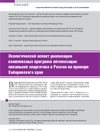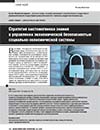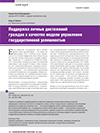Using Contract Forms of Cooperation Between the Business and the State for Strategic Planning Documents Implementation
DOI: 10.33917/es-4.170.2020.126-133
Nowadays economic development governance needs immediate restructuring in accordance with institutional requirements of the new technological mode and world-economy system. The shift to these systems is intermediated by the world financial-economic crisis aggravation. The article considers an promising and qualifying arrangement of the state and the enterprises — contracting mutual obligations. There is a detailed review on a recently implemented in the law framework instrument — agreements on protection and encouragement of capital investments. It is suggested to enhance existing set of tools for strategic planning realisation with the multilateral special agreements — target contracts. Parties to contract can be not only public-law entities but also banks, development institutes, educational and scientific institutions.


















